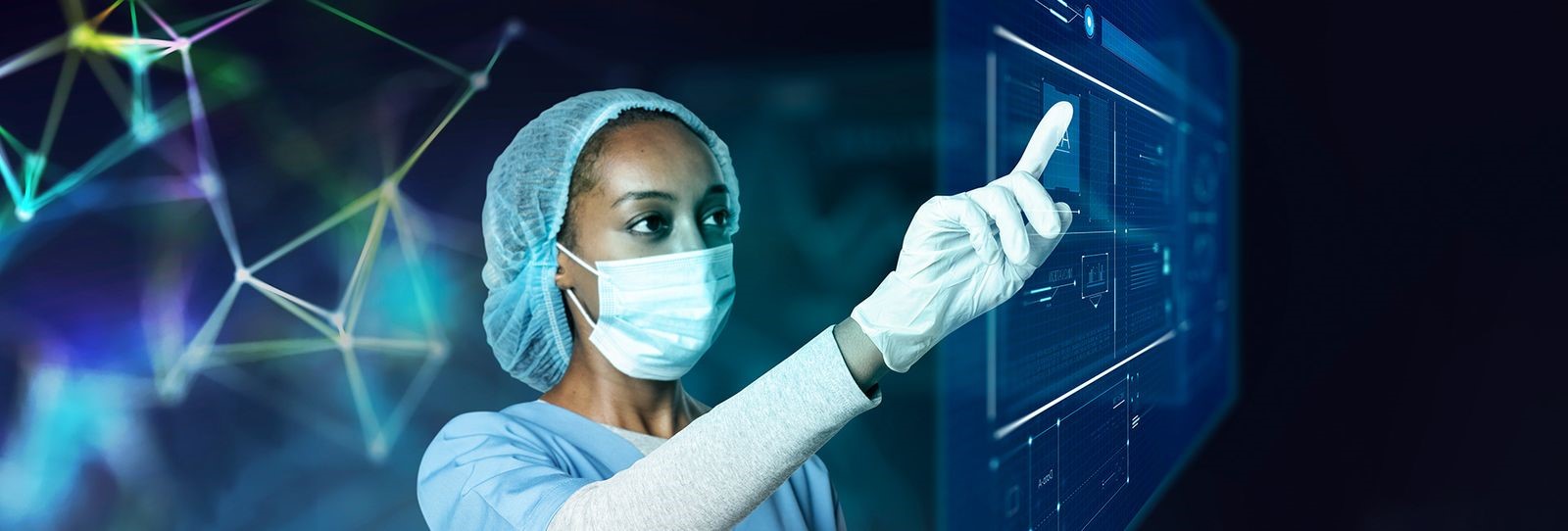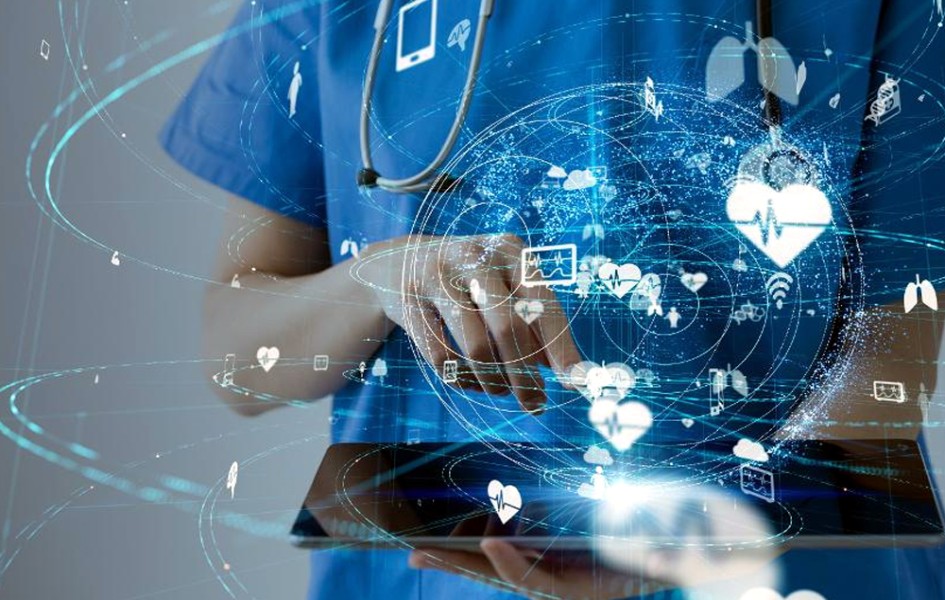Introduction
Artificial Intelligence (AI) has made significant strides in the healthcare industry over the past few years. AI technology in healthcare includes diagnosing and treating patients, conducting medical research, and managing healthcare facilities. AI has the potential to revolutionize the healthcare industry by providing faster and more accurate diagnoses and personalized treatments. As we all know, healthcare is one of the industries known for generating a vast amount of data, and there are difficulties in handling and processing the data of an enormous number of patients. With the help of AI, we can sort and analyze the data to detect patterns, predict outcomes, and automate tasks.

AI has already revamped several areas of healthcare, including:
- Administrative Tasks: - AI can automate administrative tasks such as scheduling appointments and managing patient records, freeing healthcare professionals to focus on patient care.
-
Medical imaging analysis: - AI algorithms can analyze medical images such as X-rays, CT scans, and MRIs and help radiologists detect and diagnose diseases like cancer or cardiovascular disease with greater accuracy.
-
Electronic Health Records (EHR) management: - AI can assist with patient health records management, including capturing and storing data, providing real-time updates, and analyzing data to help healthcare providers make better-informed decisions.
-
Predictive Analytics: - AI can help healthcare providers predict and prevent illnesses by analyzing data from electronic health records, patient data, and health trends.
-
Personalized treatment: - AI can help healthcare providers develop Personalized treatment plans for patients based on their medical history, genetic profile, and other factors, which can improve the effectiveness of treatment and reduce the risk of side effects.
-
Virtual assistants/chatbots: - AI-powered chatbots and virtual assistants can help healthcare providers to communicate with patients, answer questions, and provide advice without the need for a human operator.
-
Drug discovery: - AI can assist in drug discovery by analyzing large amounts of data to identify potential drug candidates and predict their efficacy.
-
Robotics and surgery: - AI can also be used to control robots in surgical procedures, allowing for greater precision, accuracy, and safety.
Advantages of AI in Healthcare
-
Faster Diagnoses: - AI can analyze large amounts of medical data quickly and accurately, helping healthcare professionals make faster and more accurate diagnoses.
-
Improved efficiency: - AI can automate administrative tasks, reducing the burden on healthcare professionals and improving the efficiency of healthcare systems.
-
Reduced Costs: - AI can potentially reduce healthcare costs by streamlining processes, reducing errors, and improving patient outcomes.
-
Reduced Stress: - AI might also decrease the stress involved in medical procedures for healthcare professionals, as they can rely on technology to identify patterns and assure them that they are going in the right direction.
-
Natural Language Processing: - Natural language processing software scans clinical texts within seconds, extracting the foremost data from the clinical text using machine learning models. Thus, physicians and staff can focus on more complex matters rather than on the not-so-valid details.
Disadvantages of AI in Healthcare
-
Data Privacy: - AI relies on large amounts of patient data, which raises concerns about data privacy and security.
-
Lack of Human Touch: - AI may not provide the same level of care and empathy that a human healthcare professional can provide.
-
Bias: - AI algorithms may be biased based on the data they are trained on, potentially leading to unfair or inaccurate diagnoses and treatments.
-
Unemployment: - It is also possible that some of the tasks previously carried out by humans could be done by these new technologies faster and more accurately, thereby replacing humans with these technologies.
-
Technical Challenges: - AI is a complex technology that requires specialized skills and resources, which may be difficult for smaller healthcare organizations to access, and the cost associated with the training is also high that they might not be able to afford it.
Future of AI in Healthcare
The future of AI in healthcare looks promising, with new applications and technologies being developed all the time. One area of focus is the development of AI-powered medical devices, such as wearable devices, that can monitor patient health in real-time. Another area of focus is using AI to improve clinical trials and drug development, potentially reducing the time and cost of bringing new treatments to market. It also can enhance the experiences of both the patients and the staff during their stay in the hospital or during the medical procedures by making it comfortable for both parties.
Conclusion
In the healthcare industry, artificial intelligence has the potential to provide faster, more accurate diagnoses, as well as personalized treatment options. However, there are concerns about data privacy, bias, and the lack of human touch that AI may provide. As AI continues to develop, it will be vital to address these concerns and ensure that AI is used ethically and responsibly in healthcare to strike the right balance between the benefits of technology and the human touch that patients deserve. However, to maintain the privacy and safety of patients, AI applications must be developed securely so that it does not have a crushing impact overall.
Opinions of MMPeers on AI in Healthcare
“Artificial Intelligence is when computers and other machines mimic human cognition, and are capable of learning, thinking, and making decisions or taking actions. The emergence of artificial intelligence (AI) in healthcare has been groundbreaking, reshaping the way we diagnose, treat and monitor patients. This technology is drastically improving outcomes by producing more accurate diagnoses and enabling more personalized treatments.” - Dr. Daniel.
“AI in healthcare is expected to play a major role in redefining the way we diagnose diseases, develop treatments and even prevent them altogether. By using artificial intelligence in healthcare, medical professionals can make more informed decisions based on more accurate information - saving time, reducing costs and improving medical records management overall. From identifying new cancer treatments to improving patient experiences, AI in healthcare promises to be a game changer.” Dr. Ruiz.
Are you a physician or healthcare practitioner?
Become a My Medical panel member and explore the many benefits of joining. Start your paid medical survey journey here - sign up










